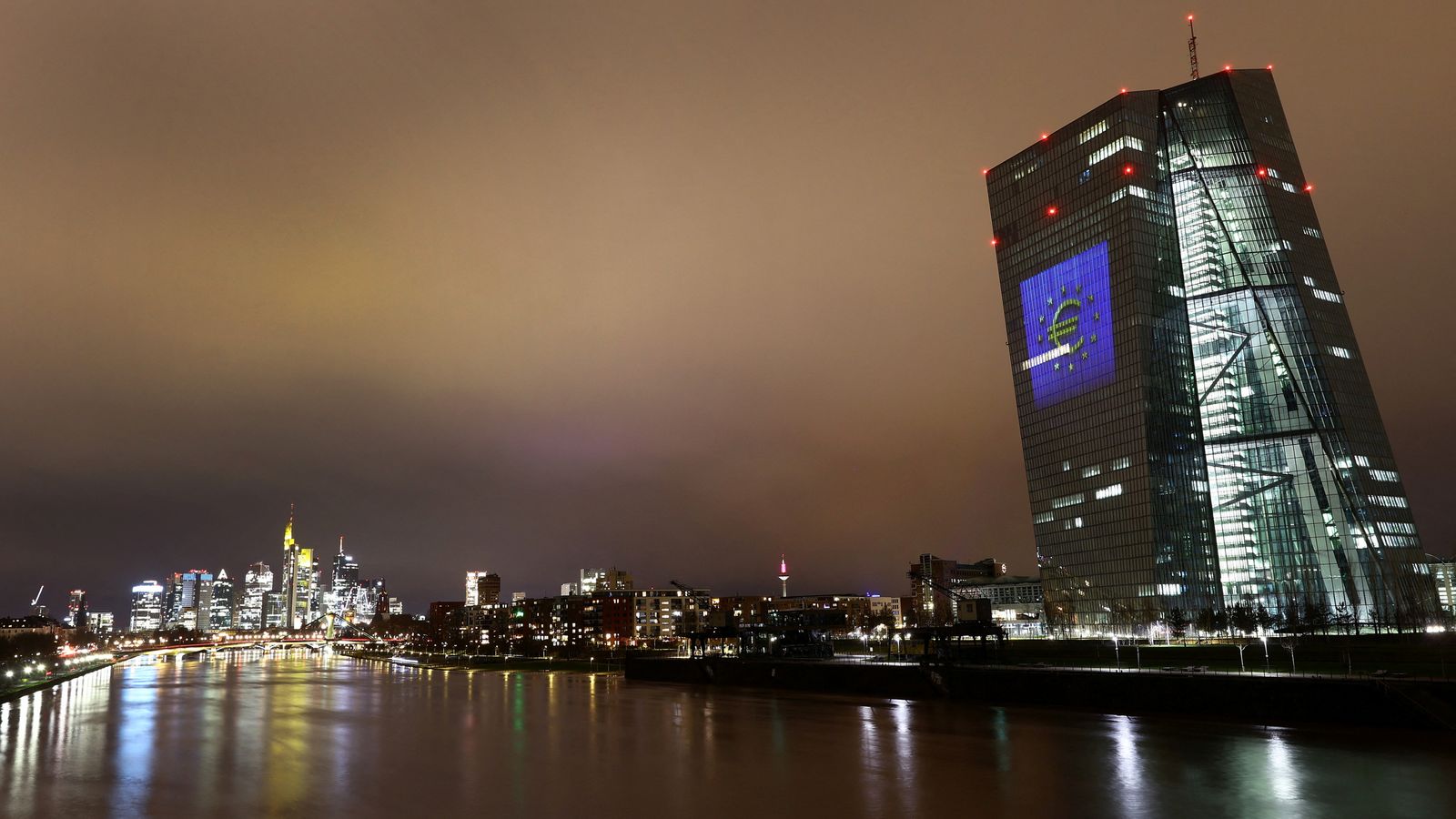The European Central Bank will raise interest rates in July for the first time in 11 years, followed by another hike in September.
The move will see it follow other central banks in the shift from supporting pandemic economies to fighting rapidly-rising inflation.
The Bank of England has approved four rate increases since December and the US Federal Reserve raised its rate by a half-point in May.
The ECB, during a meeting of its 25-member monetary policy council on Thursday, described inflation as a “major challenge” that has “broadened and intensified” in the 19 countries where the euro is used.
It said: “The Governing Council intends to raise the key ECB interest rates by 25 basis points at its July monetary policy meeting.
“The Governing Council expects to raise the key ECB interest rates again in September.
“If the medium-term inflation outlook persists or deteriorates, a larger increment will be appropriate at the September meeting.”
Petrol prices: Average cost of filling a family car hits £100 for first time
Even if you don’t drive, you’ll pay for the rise in petrol prices
Cost of living latest: Petrol prices may climb another 20p a litre this summer
Europe’s annual consumer price increases hit 8.1% in May – the highest since records began in 1997, and well above the bank’s target of 2%.
The ECB said that inflation is likely to average 6.8% this year – higher than the 5.1% it predicted in March.
Inflation next year is expected to average 3.5%, falling to 2.1% in 2024 – still above the bank’s target.
By raising rates, a central bank can influence what people, companies, and governments have to pay to borrow money, making it an important tool against inflation.
But it can also hamper growth, with higher rates making credit more expensive for businesses.
The ECB cut its growth projection for this year from 3.7% to 2.8%, insisting that the rate hikes would be “gradual but sustained”.
The ECB also said its economic stimulus programme will end next month.










